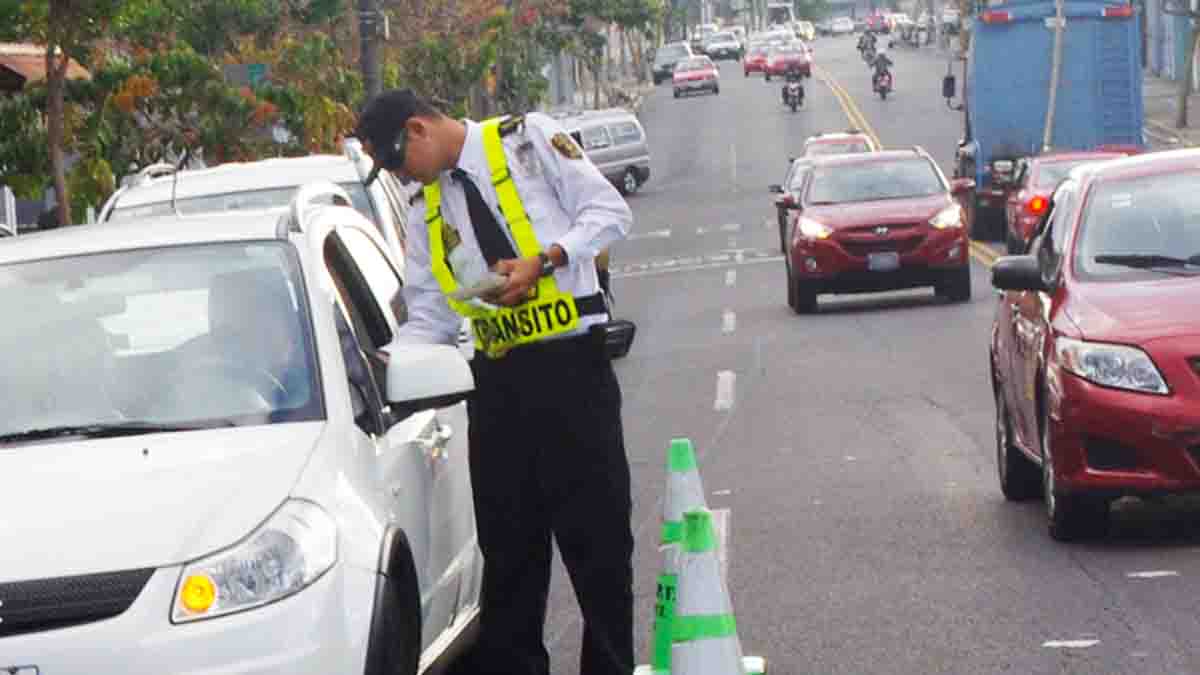
Among the rights that every driver has, is the right to appeal a traffic fine, if he considers that he did not commit a violation, or that the law was not applied correctly. Many times it happens that we are fined, without necessarily being justified the penalty. In these cases we can use the appeal of traffic fines.
Appealing a traffic ticket does not mean that you will automatically be awarded the waiver. There is a review process by a specialized office, which ultimately decides whether the appeal is valid or not. And if they tell that the appeal does not proceed, we will have to pay the fine and the interest while you were in the appeal process.
Appealing a transit report is legally called “contesting a ticket.” For those unfamiliar with the term, the inform that the police gives us is called a “subpoena”. Currently, due to the emergency by COVID-19, COSEVI is receiving appeal procedures only by email. No paperwork can be submitted in person.
How to appeal a fine by email
The easiest and fastest way to appeal a traffic ticket is to do it by email. COSEVI has an email address through which it receives and processes appeals for transit tickets. To appeal a fine by email, you must have a digital signature registered with the Central Bank of Costa Rica. If you do not have a digital signature, with the COSEVI emergency resolution for COVID-19 is in force, you can scan the appeal document and attach a legible copy of your identification document.
Although we recommend that you go to process your digital signature at one of the points authorized by the BCCR. For example, there are many banks that can process this digital signature. The use of this instrument is increasingly common in the country for procedures.
Send your appeal to the following emails, according to the delegation that has been assigned to see your process:
- San José: [email protected]
- Guápiles: [email protected]
- Heredia: [email protected]
- Lemon: [email protected]
- Liberia: [email protected]
- Puntarenas: [email protected]
- San Carlos: [email protected]
- Pérez Zeledón: [email protected]
- Alajuela: [email protected]
- Carthage: [email protected]
- Ciudad Cortes: [email protected]
- San Ramón: [email protected]
In the letter, you have to give an email address to receive notifications. With your appeal you have to include a copy of the identity card, a copy of the fine ticket, and the evidence you may need to present. These have to be scanned, numbered (Attachment # 1, Attachment # 2, etc.) and sent in the same email. Or preferably, scan everything and submit a single PDF document with all evidence and attachments. In the appeal letter, be sure to indicate that you are attaching those documents. If you send digital photos, at most they can be 10 MB in size all together.
Make sure you receive a confirmation message, stating that COSEVI registered the appeal. You can send your appeal at any time by email, but if you send it after business hours, it will be taken as the date of receipt the next business day. Be very careful with this: if you send an appeal at night, the last day you have to file it, it will be rejected … because the date you receive it is the next business day and that is already out of date, remember the 10 business days deadline. You do not have to authenticate with attorneys your appeal, as long as the document has a valid digital signature.
When your appeal and all the necessary documents have been received, they will be sent to the appeals office that is responsible for solving your case. The office depends on where the part was done. Subsequently they will contact you at the addresses you indicate, to ask to be present if necessary, or to send you the resolution of your case.
Can I appeal a fine personally, or do I need a lawyer?
You can appeal the fine personally, and it doesn’t take a lawyer to do it. However depending on your appeal, it may be a good idea to consult an attorney to advise you on the arguments and evidence you are going to put up.
What is the cost to appeal a traffic ticket?
The appeal, if you make it yourself at the COSEVI offices or by email, has no cost. If you do it through a lawyer or by a company that is dedicated to appealing parties, they will charge you a commission that varies from case to case.
If your appeal is turned down, there may be a cost. Appeals usually take a long time to resolve, and throughout that time there is interest on the fine you are appealing. The moment the fine is rejected, they will charge you the penalty plus interest. You have to carefully evaluate what is cheaper for you: pay the fine you were charged, or appeal it and risk being charged the interest!
How much time do I have to appeal a traffic ticket?
The appeal must be made within 10 business days from the time the fine was given. If you do not appeal within this period, it is assumed that the driver accepted the fine, and has to pay it.
This 10-day period starts counting the next business day, the day the fine was made. For example, if we were fined on a Monday, the 10 business day period runs from Tuesday. If we were fined on a Saturday, the 10-day period starts on Monday (which is the next business day). Due to the current COVID-19 emergency, COSEVI is not receiving appeals in person. Appeals can only be sent by email.
Can anyone else file the appeal for me?
Email appeals are 100% personal, and cannot be filed by someone else. The digital signature that appears on the document must be yours, otherwise the appeal is not valid. A traffic ticket cannot be appealed at the entrance to the Constitutional Chamber (or Chamber IV), because it is not the competence of the Fourth Chamber to resolve appeals to traffic fines. The only case in which you can appeal a traffic fine in the Fourth Chamber is if an article of the Law or some regulation was applied to you, which is clearly against what the Constitution says, or if when solving your appeal the COSEVI offices acted in some way that is contrary to your constitutional rights.
The Traffic Law, when approved in the Legislative Assembly, was submitted for review by the Constitutional Chamber, to be sure that it was not infringing constitutional rights. The processes followed by the offices of COSEVI and the Traffic Courts are always in accordance with current legal regulations. For this reason it is very difficult for an appeal of a fine to be successful in Room IV. It would definitely be an exception to the rule.
What is Decree No. 39239-MOPT?
Executive Decree No.39239-MOPT is the decree establishing the possibility of appealing traffic infractions by electronic means. In this decree appears what are the requirements to appeal by electronic means, and how is the procedure.
The Executive Decree establishes the possibility of appealing by email, or by fax. Currently faxes are a relic that few people keep and use, and it is a thousand times easier to send an email, but if you want to appeal a traffic ticket by fax, it is allowed by the MOPT.
What is the resolution of provision for emergency attention during the COVID-19 crisis?
It is a resolution that indicates how the procedures are carried out in COSEVI, while the emergency for COVID-19 is in force in Costa Rica. This resolution indicates that appeals can only be made digitally. It also establishes special procedures for other related matters such as refund of money in COSEVI, reduction of points on license, change of suspensions for communal work, etc.
What is the prescription of a traffic ticket?
When a traffic ticket is made, a period begins for COSEVI to register it and proceed to collect it. If a certain time passes and the fine has not been charged, it is automatically canceled. This is called a prescription of the fine. According to article 190 of the Traffic Law, the prescription for fixed fine infractions occurs:
- After two years from the moment the fine is issued, and the subsequent administrative process, which is the process of registering the fine and signing it.
- Seven years from the moment a fine becomes final, for the fine collection process.
- When there is a collision and with the fine come criminal consequences for the driver, these also have a prescription: two years from the infraction for the administrative act, and two years from the final sentence, for the fulfillment of the corresponding penalty.
This means that if a driver is fined, and is appealed, and COSEVI does not resolve the appeal in two years, the fine is voided. Or if the fine decision is final but the driver does not pay it in seven years, it is canceled.
Of course, the topic is not as easy as it sounds. Unpaid traffic fines cause problems when paying, leaving and renewing licenses. And very often, the driver is sent to court, which creates a whole host of other problems with banks, loans, and even getting a job. It is difficult to use the prescription to escape any pending fines or penalties, and trying to do so is not recommended.

